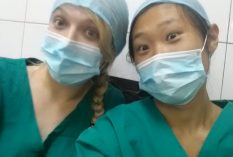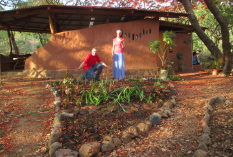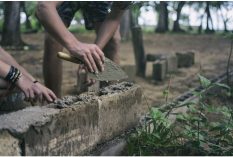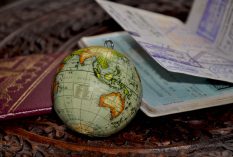When embarking on working vacations, choose a destination that allows you to be productive while enjoying leisure activities. Working vacations are ideal for people lucky enough to work anywhere, such as digital nomads or business executives seeking a change of scenery. France is the perfect destination for this. It’s home to stunning destinations that allow you to enjoy a blend of work and relaxation. Here’s a guide to working vacations in France.
The Best Time to Visit France for a Workation
The best time to visit France for a workation is spring (April to June) and fall (September to November). These periods offer pleasant weather, fewer tourists, and a balanced blend of work and leisure opportunities. In spring, you can enjoy mild temperatures and blooming flowers, creating an ideal environment for outdoor activities and exploring picturesque towns and countryside during breaks. Fall brings cooler weather and stunning autumn foliage, adding charm to your workation experience.
These seasons also enjoy a calmer atmosphere compared to the busy summer months, allowing you to find quieter spots for work and accommodation. Best of all, accommodations have more reasonable prices. Cities like Paris, Lyon, and Bordeaux have the best coworking spaces, reliable internet, and plenty of cultural and culinary experiences to enhance your stay. Moreover, French regions such as Provence, Alsace, and the Loire Valley present scenic landscapes and local charm, perfect for unwinding after working hours.
Spring and fall shoulder seasons are the best times to enjoy a working vacation in France. During these times, you can maximise productivity while discovering France’s rich culture and natural beauty, making your workation efficient and enjoyable.
The Best Things to Do During a Workation in France
During a workation in France, balancing work with leisure can maximise your experience. Here are some of the best things to do:
- Explore iconic cities – spend time in Paris, Lyon, and Marseille. Discover their rich history, art, and cuisine. Visit landmarks like the Eiffel Tower, Notre Dame, and the Musée d’Orsay.
- Join private tours – you can join private cultural tours of France on your workation, a great way to immerse yourself in local traditions, explore historic landmarks, and enjoy authentic culinary experiences while balancing work and leisure. Explore vineyards in Bordeaux, historic castles in the Loire Valley, or the picturesque villages of Provence with expert guides.
- Nature and outdoor activities – explore the great outdoors with activities like hiking in the French Alps, cycling through the countryside, or relaxing on the beaches of the French Riviera.
- Culinary experiences– discover French cuisine by dining at local eateries, taking cooking classes, and visiting farmers’ markets. Don’t miss trying regional specialities like escargot, bouillabaisse, and crepes.
- Discover the local culture – attend festivals, art exhibitions, and theatre performances to immerse yourself in French culture.
- Take day trips – take advantage of France’s efficient train system for day trips to nearby attractions like Versailles, Mont Saint-Michel, and the lavender fields of Provence.
The Best Places to Stay in France for a Workation
France boasts numerous destinations perfect for a workation, combining work-friendly amenities with cultural and scenic attractions. Here are some of the best places to stay:
- Paris – the French capital, is an ideal workation hub. It has extensive coworking spaces, reliable internet, and a vibrant cultural scene. Neighbourhoods like Le Marais, Montmartre, and Saint-Germain-des-Prés offer charming cafes and convenient transport links.
- Nice– situated on the French Riviera, Nice boasts panoramic sea views, Mediterranean weather, and a range of coworking spaces. The Old Town and Promenade des Anglais are popular areas to stay for those on a working vacation.
- Bordeaux – while famous for its wine, Bordeaux has a blend of laid-back lifestyle and urban conveniences. Stay in the Chartrons district for trendy coworking spaces and historic charm.
- Provence – for a more rural workation, the villages of Provence, such as Aix-en-Provence and Avignon, provide a tranquil setting with beautiful landscapes, local markets, and historical sites.
- Lyon – known for its culinary excellence and historical architecture, Lyon provides a relaxed yet stimulating environment. The Presqu’île and Old Town areas are particularly appealing for their ambience and amenities.
- Annecy – nestled in the French Alps, Annecy is the perfect base for those who love outdoor activities. The picturesque lakeside town offers a peaceful environment and numerous cafes and coworking spots.
Important Documents for a Workation in France
When preparing for a workation in France, it’s essential to bring the following important documents:
- Passport – ensure the validity is at least six months beyond your planned stay.
- Health Insurance – proof of health insurance coverage. It should cover international travel.
- Expatriate Travel Insurance – travellers should look into tailored expat travel insurance when visiting France on workation to cover medical emergencies, trip cancellations, and personal belongings.
- Visa – depending on your nationality and the length of your stay, you may need a visa. Check France’s visa requirements in advance.
- Travel Itinerary – keep copies of your flight details, accommodation reservations, and tour bookings.
- Work Documents – include contracts, client agreements, and any necessary paperwork for remote work.
- Financial Documents – copies of credit cards, a backup card, and details of your bank and financial institutions.
- Electronic Copies -digital backups of all important documents stored securely in the cloud.
Bringing these documents ensures you are well-prepared for a smooth and hassle-free workation in France.
What to Pack for a Workation in France
Your packing list for a work vacation in France should include work essentials and personal items. Here’s a comprehensive list:
- Work Essentials – notebooks and pens, portable hard drive or USB flash drives, business cards, lightweight backpack or briefcase
- Electronics – laptop and charger, portable power bank, mobile phone, accessories like headphones, etc.
- Clothing – Comfortable work attire, casual clothes for exploring, comfortable walking shoes, weather-appropriate outerwear, swimwear, etc.
- Personal care items – toiletries, travel-sized toiletries for day trips, medications and a first aid kit, sunscreen and insect repellent.
- Leisure items – camera or smartphone with a good camera, reading materials, travel journal.
- Miscellaneous – reusable water bottle, snacks for travel days, travel guidebook or map, reusable shopping bag, etc.











